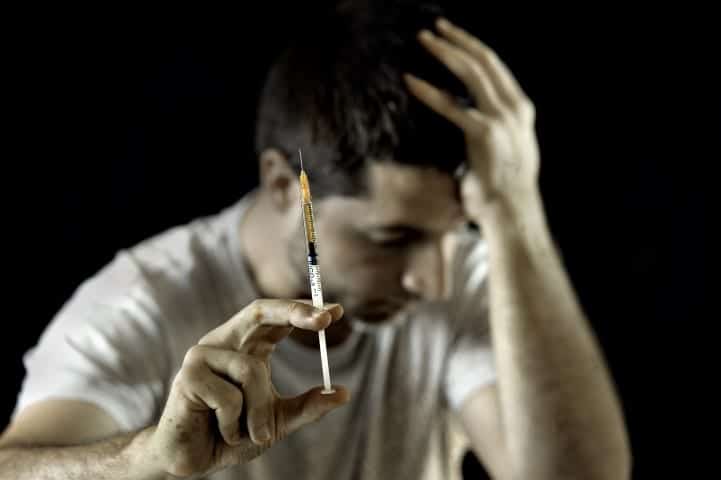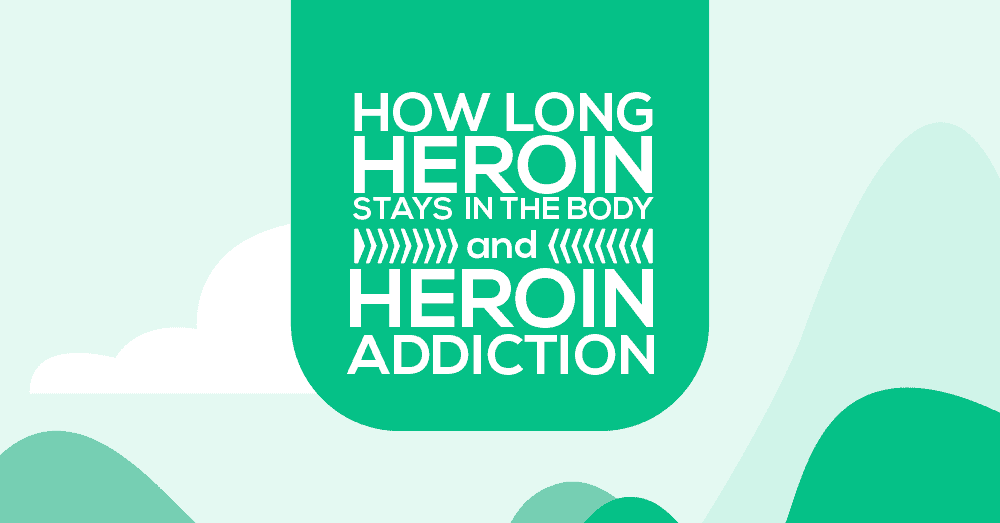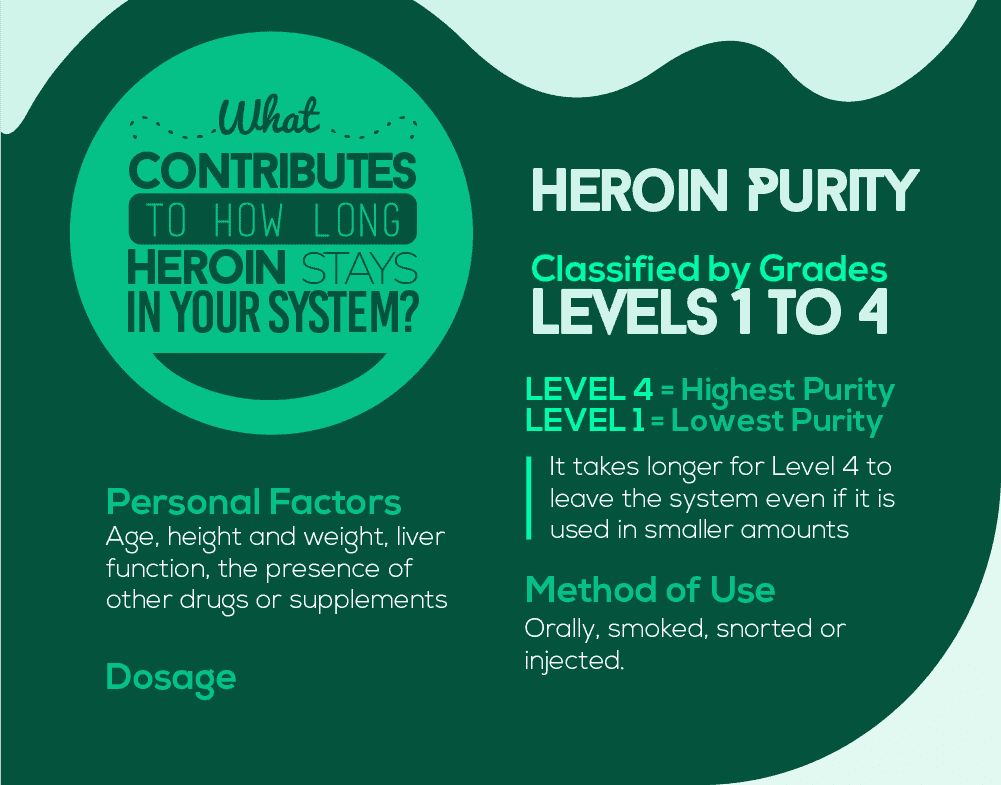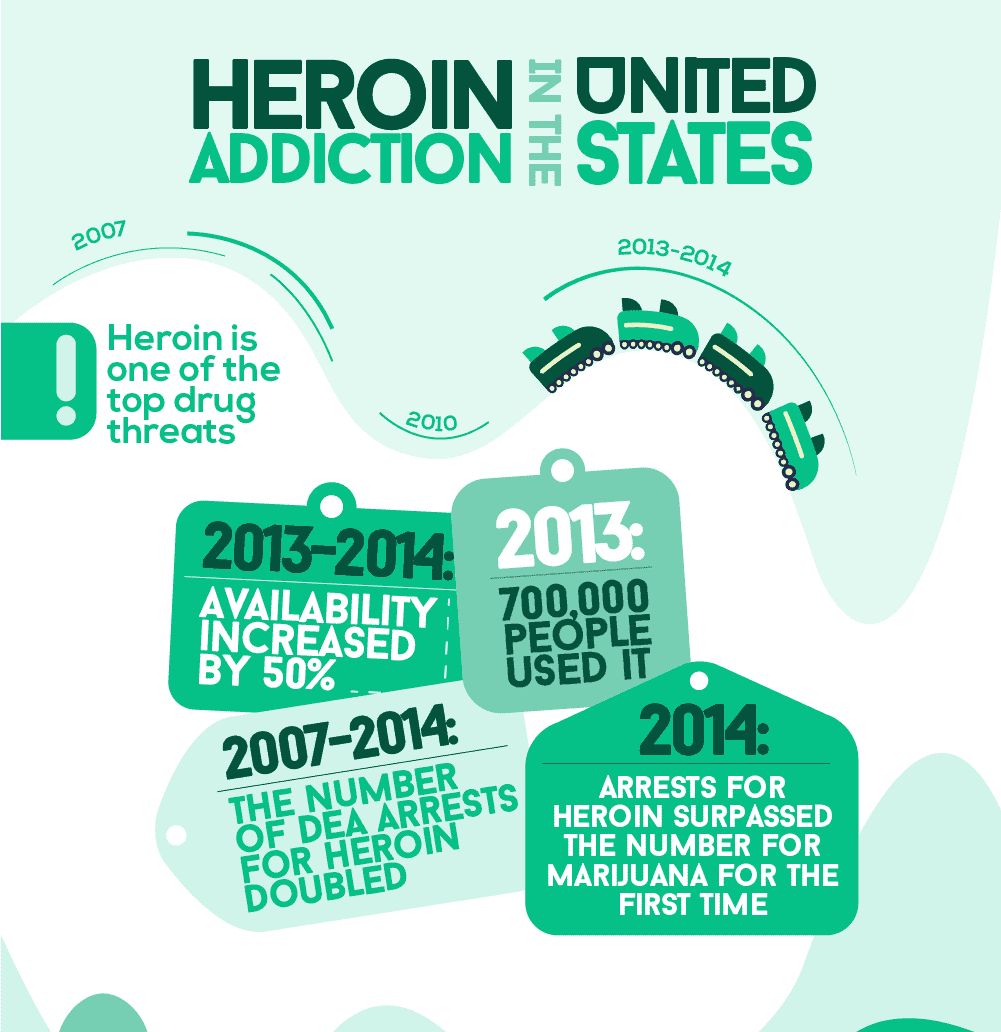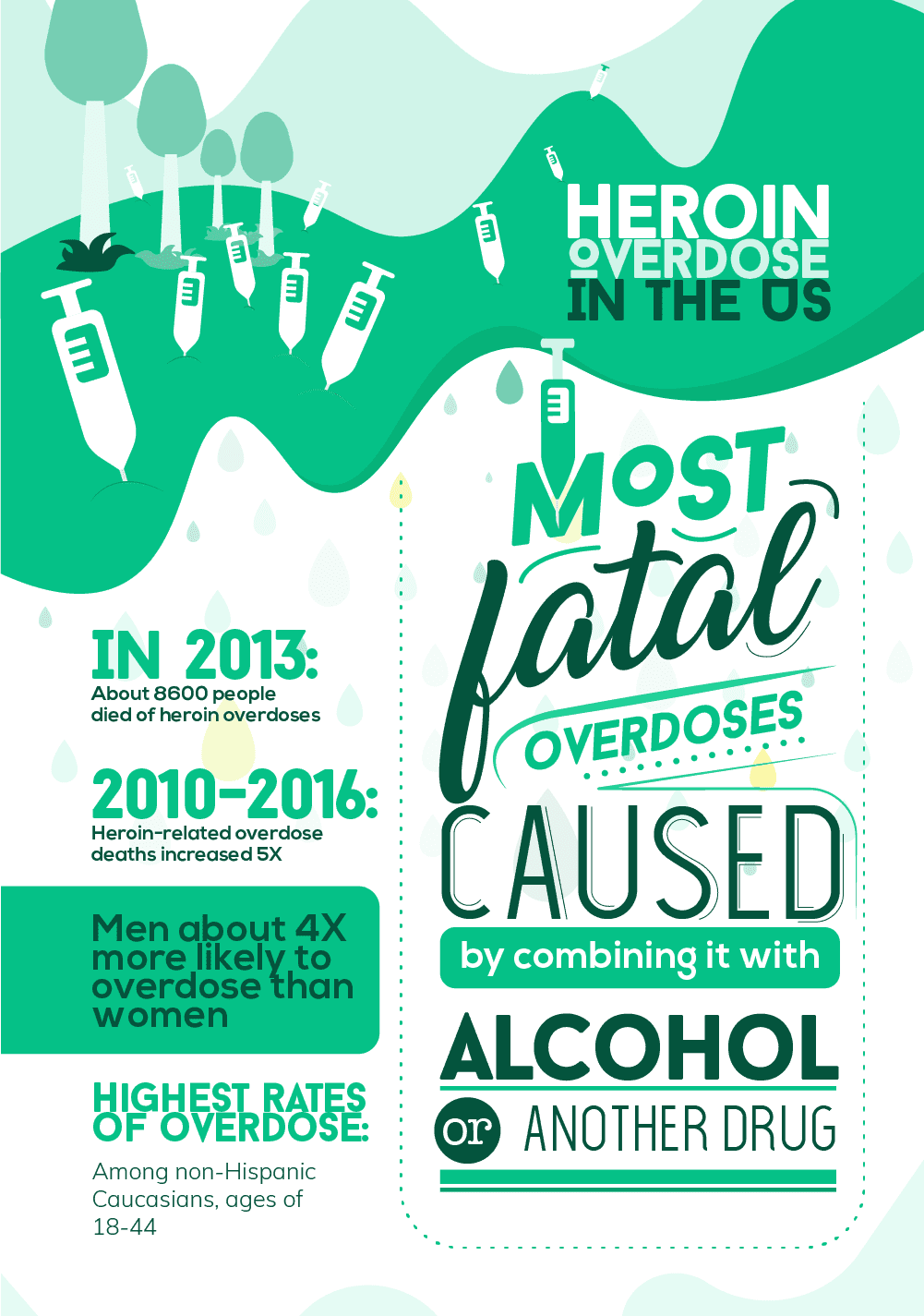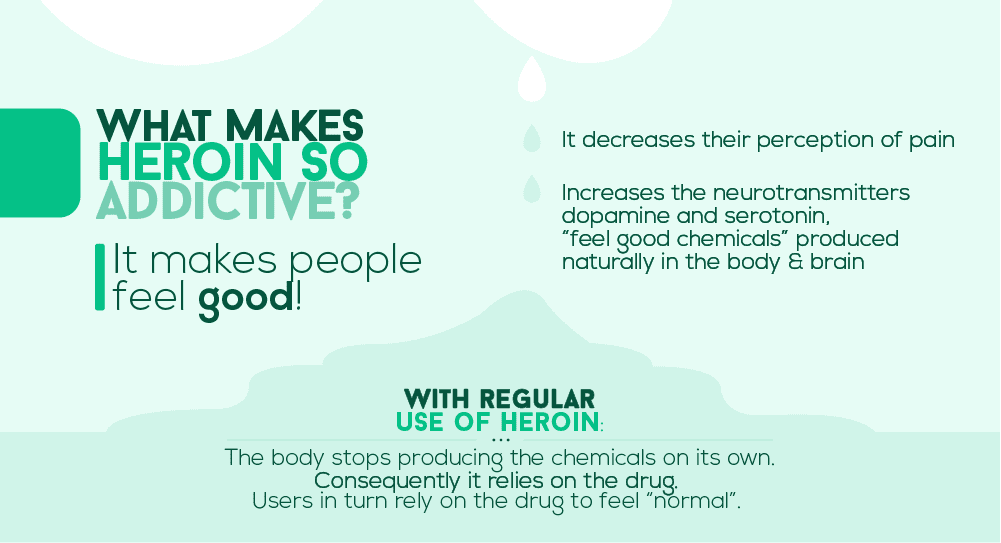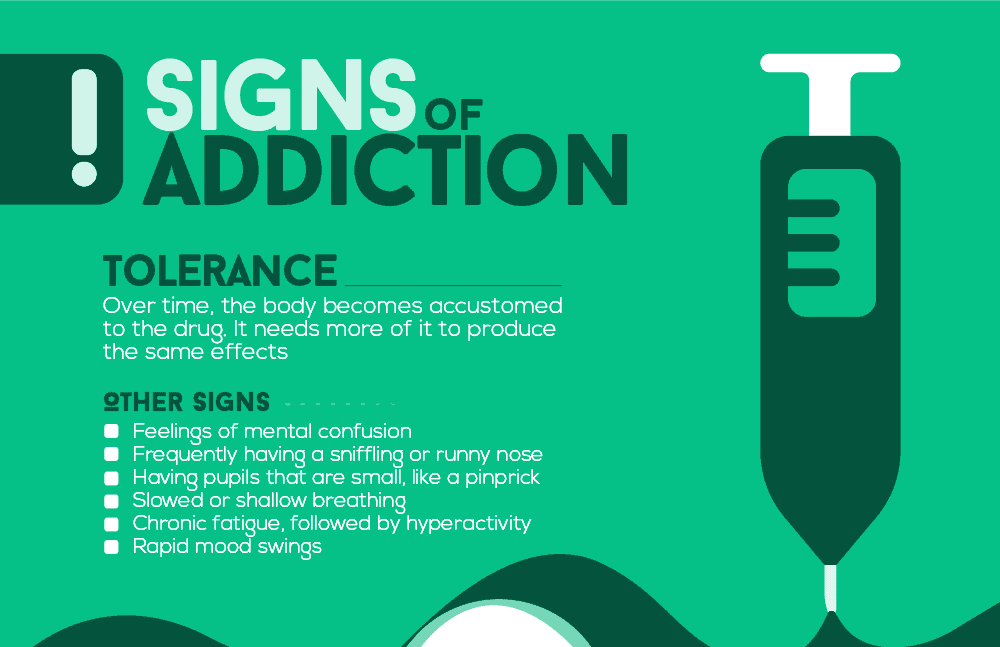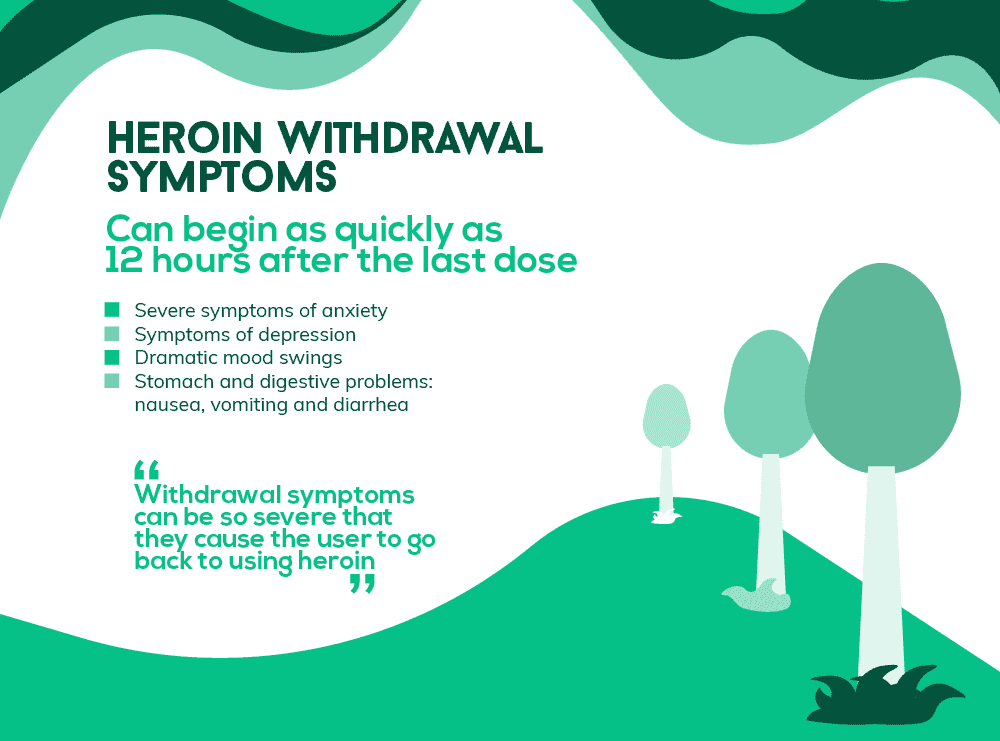How Long Heroin Stays in the Body and Heroin Addiction
That is the question a lot of heroin addicts have once they’ve been addicted to the drug for quite some time. They often have been addicted to heroin for a period of months, or even years, and they may be contemplating trying to stop using. Perhaps you have the same question, possibly because you’d like to try and get a job, and you’re concerned about failing a heroin urine test.
How Long Does Heroin Stay in Your System and What Addiction is Like
Regardless of what your situation is, it’s important for you to understand the effects that heroin can have on your body once you start using it, and once you’re addicted to it. You also need to know as much as possible about the recovery process once you do stop using heroin. That way, you can go on to reach some of your goals without having to worry about failing a heroin drug test. Getting the right information is vital for you so that you can have a better understanding of what heroin addiction is like, and what you can expect during your recovery. 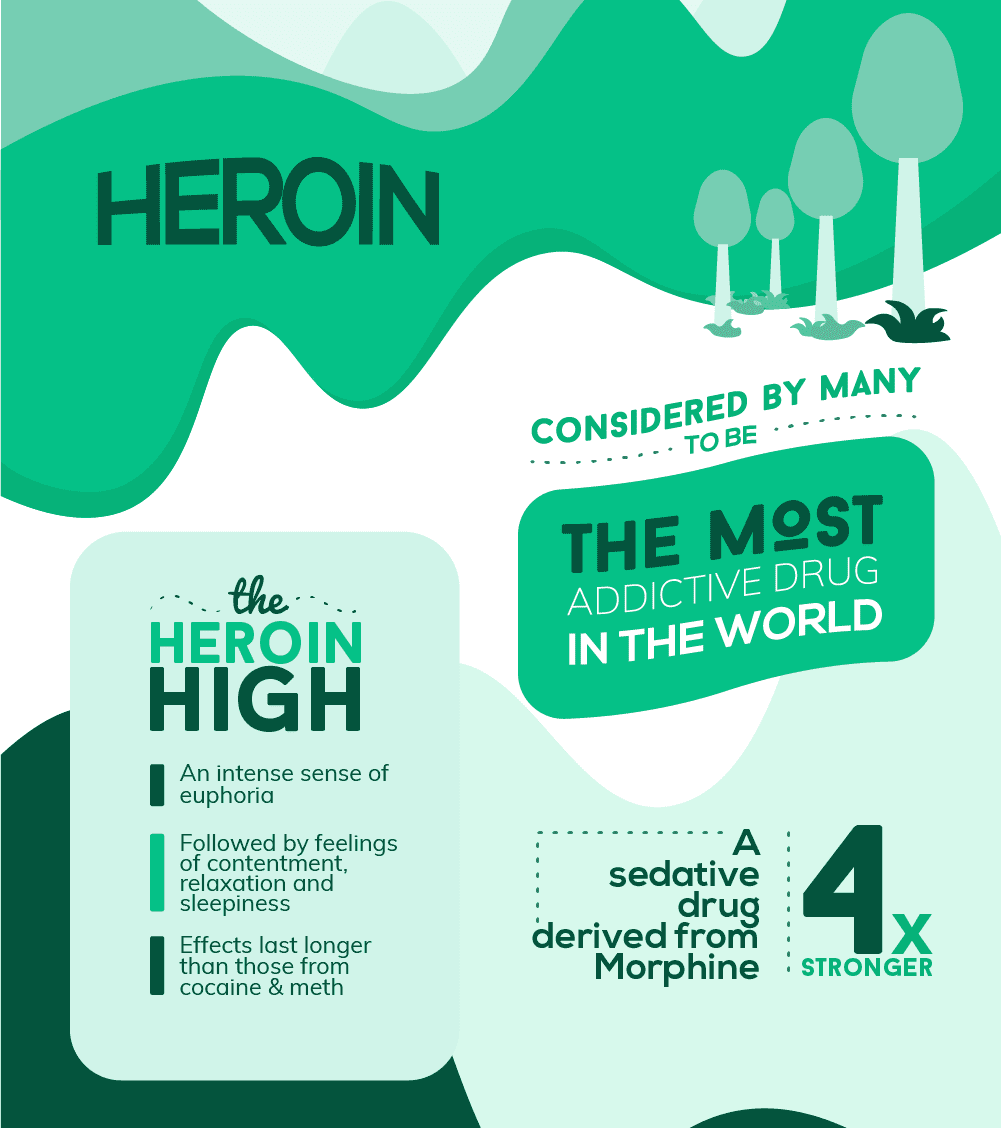
What Length of Time Does Heroin Remain in the Body?
If you’re wondering, how long is heroin in your urine and able to be detected on a heroin drug test, you’re in the right place to get some excellent information. According to Mental Health Daily, heroin is the most addictive drug in the world. Those who use it will often eventually reach the point where they want to stop using it because they start to experience the damage that it is doing to their lives. If you’re thinking along those same lines, and you’re trying to make a plan to put your life back together again after a heroin addiction, it’s important to know information about heroin’s half-life and when you can expect it to be gone from your body. Sometimes people believe that once the high subsides, that must mean that the heroin is completely gone from their systems. Unfortunately, that is not the case at all. When you use heroin, you usually experience a relatively short high, but it can last a few hours. Most people only remain high for just a few minutes. Your experience will vary, based on how much heroin you’re using and the method of administration. The half-life of heroin is quite short, compared to other drugs, and alcohol as well. After you have used heroin, about 50% of the drug leaves the body in less than ten minutes. The remaining 50% takes a bit longer, and this is because of the way heroin crosses the blood-brain barrier. When heroin reaches the brain, it is deacetylated into different metabolites, and it eventually becomes morphine, binding to the opioid receptors in the brain. This causes you to experience euphoria when you use. If you used an amount of heroin that had a half-life of eight minutes, it should stay in your system for about forty-four minutes. However, those metabolites that were created will stay for a longer period of time. Once the heroin becomes morphine in the brain, it has a half-life of up to seven hours. This amount of morphine would not leave the body for as long as a little over a day and a half. However, it is important to remember that most heroin users rarely use infrequently enough to project that this would be their outcome. Most people who are addicted to heroin will use it at least one time every day, and that could mean that it would take a much longer time for the drug to be out of their systems. The body will be continually attempting to process it, but when higher dosages are used, the metabolites will be stored in fat cells in the body until they can be eliminated properly. As you can imagine, this elimination does take time, and the amount of time that it will take your body will differ from what someone else has experienced. 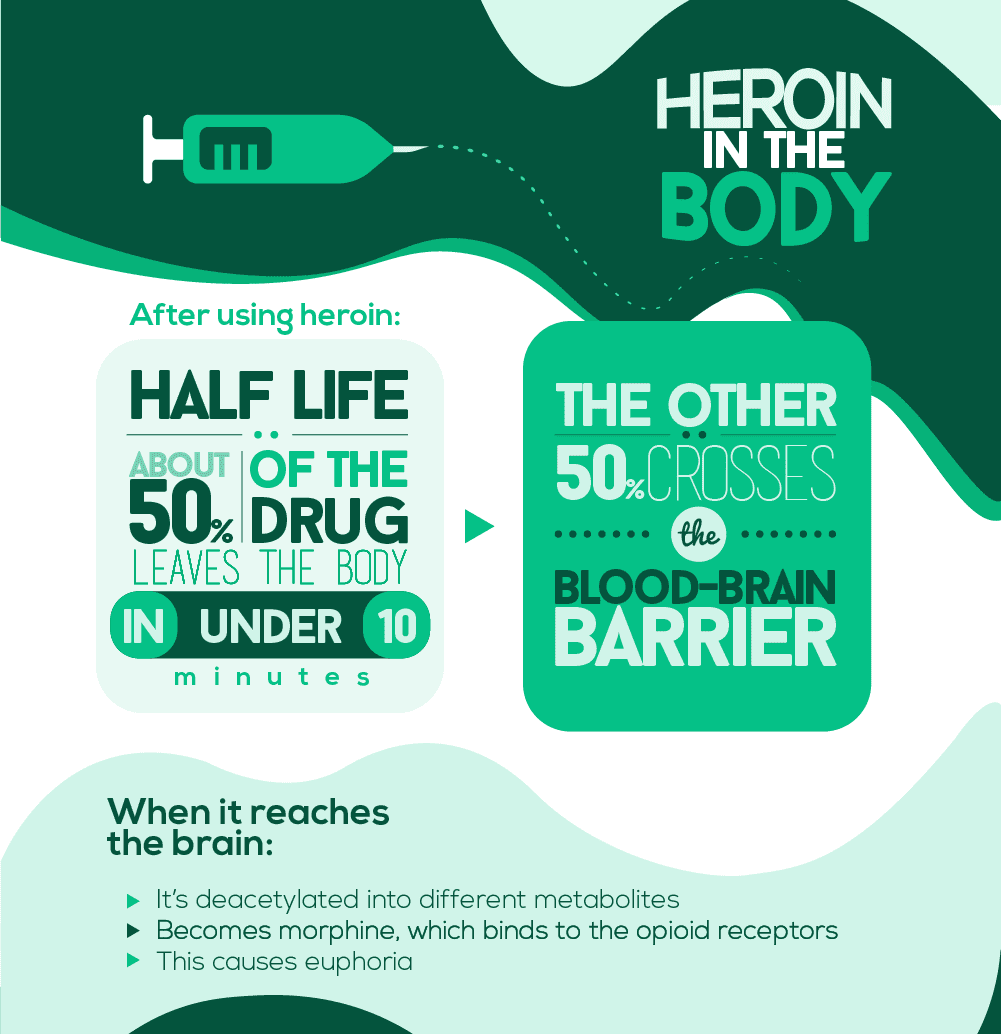
Factors That Contribute to the Length of Time Heroin is in Your System
There are a number of different factors that indicate how quickly your body is going to be able to process and eliminate heroin, and this is because everyone is very different. One person may find that the drug is out of his or her system in about a day, while for someone else, it can take two days, or even longer for it to be cleared. The factors that come into play with heroin elimination include:
- Personal factors – Your age, your height and weight, your liver function, your metabolism and whether or not you are taking any other drugs or using supplements all play a major role in how quickly you’re able to eliminate heroin from your body.
- Dosage amount – Even though the body’s metabolism rate tends to be fairly capable of eliminating the drug, when the dosage amount is higher, it can cause the metabolism to slow down. The body is only able to process a certain amount of heroin at one time, and when you have used too much in too short a period of time, it will likely get stored in your body’s fat cells.
- Heroin purity – Heroin is classified according to its levels of purity using the number grades 1-4. For example, heroin that is of the highest purity would be classified as a level 4, and heroin that was the least pure would be classified as a level 1. Most heroin users try to get higher purity levels for their drugs because the effects are better. However, when that is the case, it takes longer for the drug to exit their systems, even if it is used in smaller amounts.
- Method of use – Heroin can be used in many different ways. It can be taken orally, smoked, snorted or injected. The method of use can have a profound effect on how quickly the drug is excreted from the body. Those who use heroin orally are generally using less pure forms of heroin, and the drug may be eliminated from the body rather quickly. Those who inject heroin are usually injecting level 4 grade drugs, and this method means that it will take longer for it to be eliminated.
- Heroin usage frequency – How often you use heroin has a direct correlation to your tolerance levels of the drug. As you use more often, your tolerance levels generally increase. As you know, the more heroin you use, the longer it takes for your body to metabolize and eliminate it from your body.
Heroin Drug Test
More employers are becoming sensitive to the serious drug problem in the United States, and they often require heroin drug tests for new employees. Many times, they’ll even conditionally offer a position with the company, but it will only become a firm offer once the results of the drug screen are in. What’s more, once an employee is hired, he or she is often required to submit to both scheduled and unscheduled drug tests at any time. This is to ensure that the employee is not using drugs after passing the initial test. It’s important to note that if you do pass a heroin drug test, that should never be used as a reason to go back to the drug once your employment has started. Eventually, because of the way these tests are conducted, if you continue to use heroin, your addiction will be made known. SAMHSA has a requirement for urine drug screens in place, and these tests will detect heroin above the rate of 2000 ng/ml. The tests that are used can detect the drug between 24 and 48 hours after use. Urine drug tests are only completed under very tightly controlled conditions. In most cases, you will report to a testing facility and asked to remove your clothes and change into a gown. This is to ensure that you’re not bringing in urine from someone else to use it as your own. After you’ve changed into the gown, you’ll be taken to the testing area, which is generally a bathroom that has been somewhat altered. There will be no water running in the sink, which means you will not be able to wash your hands there afterwards. This is so that your urine sample cannot be watered down. You’ll also see that the water in the toilet has been dyed so that it cannot be used to water down your sample. There are even some companies that require potential employees to be watched as they provide the sample. Once you provide your test, it will be checked to ensure that it is the proper temperature. It will then be tested for the presence of heroin and other drugs. If you fail the first test, you may get an opportunity to repeat it, but this is not a guarantee. If you fail the second test, the results will stand and you will not be offered employment.
Heroin Addiction and Statistics You Should Know
The various heroin addiction statistics that exist in the United States are quite surprising. Quite often, people who are addicted to heroin tend to believe that they’re all alone. Although they may realize that there are others who use as well, they don’t really understand the scope to which this type of addiction has grown. Consider the following:
- Prescription opioid painkillers and heroin are among the top drug threats in the United States according the 2015 National Drug Threat Assessment by the Drug Enforcement Agency.
- The availability of heroin in the United States increased by 50% between 2013 and 2014.
- 700,000 people in the United States used heroin in 2013.
- That number is doubled when compared to statistics from ten years ago.
- The number of first-time users of heroin has increased 60%.
- Between 2007 and 2014, the number of DEA arrests for heroin doubled.
- In 2014, this number surpassed the number of marijuana arrests for the first time.
- Teenage heroin use has increased by about 80%.
- About 1 out of every 5 drug rehab admissions is because of a heroin addiction, or an addiction to another type of opiate drug.
It’s incredible to think how much heroin use has increased in this country. However, these statistics certainly shed some light on an epidemic that has only gotten worse over the last several years.
Heroin Overdose: Statistics and the Risks Involved with Relapsing
The statistics surrounding heroin overdose are just as shocking and distressing as the addiction statistics are. An overdose on heroin is a very real possibility for anyone who uses this potent drug, and statistics tell us the following about heroin death rates:
- In 2013, there were about 8600 people in the United States who died of heroin overdoses.
- That number is three times higher than it was just three years prior.
- Men are about four times more likely to overdose on heroin as women.
- The highest rates of heroin overdoses are among non-Hispanic Caucasians who are between the ages of 18 and 44.
- From 2002 to 2015, there was a 6.2-fold increase in the number of heroin overdose deaths in the U.S.
An overdose on heroin can happen so easily, and most people don’t realize that this is the case at all. It is possible to overdose on heroin at any time when you’re using it if your dosage is too high. However, a vast number of overdoses occur because people attempt to stop using heroin without getting the proper kind of professional help. Instead, they try to quit using the drug on their own, and what usually happens is that they go through withdrawal symptoms for a period of time, until it gets to be too much for them to bear. After that, they go back to using, which is also known as relapsing. All too often, when a relapse occurs, the user fails to understand that his or her tolerance levels have changed drastically, even if it’s only been a few days since the last dose of heroin. Because of this, that individual will use the amount of heroin that he or she was using prior to stopping. Because the body is not equipped to handle that amount any longer, an overdose on heroin is very likely. If an overdose does occur, it is possible to get immediate medical attention, and the individual may survive if the right medications are given right away. However, a large number of overdoses occur when the person is alone, and so, they result in death.
The Addictive Power of Heroin
Heroin has been referred to as the most addictive drug in the world. It is derived from morphine, but as an opiate drug, it is four times more powerful. When heroin is used, it produces an intense sense of euphoria. Many heroin users report that they feel warm after they have used the drug, and afterwards, they are usually drowsy for several hours. For a heroin user, there’s no denying that the drug is extremely powerful and very potent. When it attaches to the opioid receptors within the body, it decreases the user’s perception of pain and activates the reward centers in the brain. As a result, increased amounts of dopamine and serotonin are produced in the body, and these are the “feel good” chemicals that the body and brain should naturally produce on their own. With the use of heroin, the drug eventually takes over this job, and the result is an individual who just doesn’t feel like him or herself without using. Thus, a heroin addiction has taken root.
Heroin Tolerance: How Does it Occur?
When someone has a tolerance to heroin, it means that this individual requires more of the drug to get the same effects. This might mean larger dosage amounts, or it could mean more frequent uses, or both. Tolerance to heroin forms with repeat uses of the drug over time, but it doesn’t take long before you start to become accustomed to the dosage amount you used the very first time you started using the drug. Tolerance is a clear sign of addiction, however, there are also other signs of heroin addiction that you should also be aware of as well.
Signs of Heroin Addiction
People who use heroin on a regular basis are most likely addicted to it. In fact, some experts believe that it’s even possible to become addicted to heroin after only using it one time. Still, that doesn’t necessarily mean that you believe you have an addiction. Quite often, heroin addicts feel as though they’re in complete control, and they believe that they can stop using whenever they decide to do so. There are a few different things you can look for to determine whether or not you have a heroin addiction. These include:
- Looking slumped over or droopy in your appearance
- Feelings of mental confusion
- Frequently having a sniffling or runny nose
- Having pupils that are small, like a pinprick
- Ongoing weight loss without any real reason
- For women, abnormal menses
- Slowed or shallow breathing
- Dry mouth with excessive thirst
- Excessive sleeping or yawning
- Chronic fatigue, followed by hyperactivity
- Rapid mood swings
Have you noticed any of the above signs of heroin addiction? If you have, but you’re still not sure that you have an actual addiction to this drug, it might benefit you to try taking a heroin addiction quiz. This quiz will ask you a series of questions about your heroin use, and it will help you to understand your relationship with this drug, and whether or not you should consider getting professional help for an addiction.
Heroin Withdrawal: Understanding the Symptoms
Heroin withdrawal is very difficult, and the symptoms can begin in as little as 12 hours after you’ve taken your last dose of the drug. They occur because your brain’s chemistry is being disrupted, and the result is withdrawal symptoms such as:
- Severe symptoms of anxiety
- Symptoms of depression
- Dramatic mood swings
- Muscle cramps in the body
- Stomach and digestive problems – nausea, vomiting and diarrhea
- Sweating and chills
- Mild seizures
Usually, these and any other withdrawal symptoms that may be experienced are severe enough to cause you to go back to using heroin. This is simply an attempt to get some relief from the symptoms you’re experiencing. However, doing so can be dangerous because it can lead to an overdose. If it does not lead to an overdose, it creates an addiction cycle that – in essence – teaches your brain that it cannot survive without heroin.
Heroin Treatment: Reasons to Get Professional Help
Heroin addiction is an epidemic that is not going to go away any time soon. In fact, in light of the fact that prescription drug addiction is increasing in the U.S., and because people who are addicted to prescription drugs will often turn to heroin eventually, it is likely to only get worse. There are so many reasons for you to get the professional help you need for your heroin addiction. By going to heroin rehab, you’ll be protecting yourself against succumbing to an overdose because you’ve relapsed after trying to stop using heroin on your own. You’ll also be able to enjoy life more fully with your family, realize many of the goals you set for yourself so many years ago, and enjoy a longer life with better physical health. You’ll avoid many of the legal issues that can go along with using drugs like heroin, and you’ll have the satisfaction of knowing that there isn’t a drug addiction that controls you any longer.
Going to Rehab for Heroin: Northpoint Recovery Can Help You
If you’ve been wondering how long heroin can be detected in urine because you’re hoping to recover from your addiction, then hopefully, this information has been very helpful for you. Perhaps you’re planning to recover because you want to get a good job, and you’re looking to turn to your entire life around. It’s important to know how long heroin is detectible in urine prior to going for your drug screen. This will help you as you make a plan to stop using. Even so, it’s also important for you to understand how vital it is for you to stop using heroin altogether. This is one of the most dangerous drugs in the world, and getting professional help if you have a heroin addiction is crucial to your recovery. While it may mean that you need to take a little bit more time to focus on healing from your addiction, you’ll find that in the long run, it’s time well spent. Remember, the goal is for you to be heroin-free, and stopping the use of this powerful and dangerous drug on your own is only likely to end in a relapse, which could subsequently end in an overdose. The fact remains that a heroin addiction is a strong force in your life, and even if you think you can manage it on your own, and even if you believe that you are able to overcome it, the chances of doing so are very small, according to statistics. Fortunately, this isn’t a journey that you’re required to take on your own. So many people have opted to get professional help and they’re glad they did because of the freedom it afforded them later on.
What Did you Think About This Blog?
Give it a Rating!

